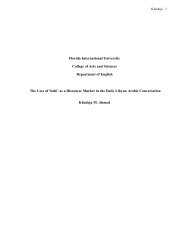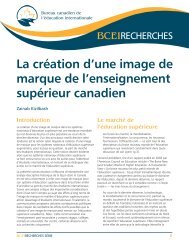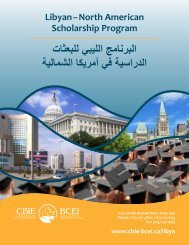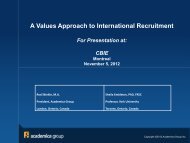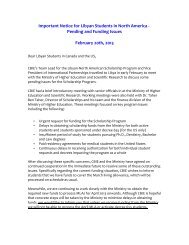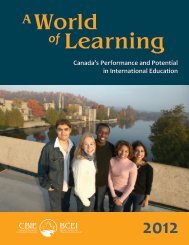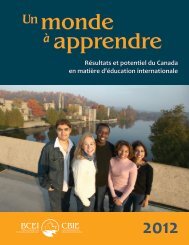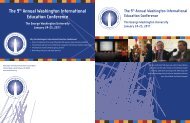Creating a New Historical Perspective: EU and the Wider World ...
Creating a New Historical Perspective: EU and the Wider World ...
Creating a New Historical Perspective: EU and the Wider World ...
You also want an ePaper? Increase the reach of your titles
YUMPU automatically turns print PDFs into web optimized ePapers that Google loves.
<strong>and</strong> methodologies, <strong>and</strong> those which from <strong>the</strong> beginning seek to communicate<br />
a certain attitude or mindset, <strong>and</strong> deal immediately with research topics, giving<br />
less systematic attention to building up a framework of general knowledge.<br />
In <strong>the</strong> first case, with some degree of exaggeration, we might say that History<br />
is conceived of as an existing corpus of knowledge which can be arranged according<br />
to more basic or more specialised contents, <strong>and</strong> that <strong>the</strong> direct knowledge<br />
or experience of historiographical practice or research techniques should<br />
come in a second or third phase of studies. In <strong>the</strong> second case, notwithst<strong>and</strong>ing<br />
quite relevant variations, we can say that history is understood to be a way of<br />
approaching reality which should be transmitted immediately, usually through<br />
actual examples of research or group work; whereas learning ‘basic’ contents is<br />
less immediately important, ei<strong>the</strong>r because it is considered <strong>the</strong> task of secondary<br />
school studies or because it is thought that <strong>the</strong> essential thing is that <strong>the</strong> student<br />
know how to find <strong>and</strong> acquire such knowledge when needed. We can usefully<br />
conceptualize this division in terms not of dichotomy but of a range of possible<br />
combinations, each with its specific characteristics. The range of combinations,<br />
which includes o<strong>the</strong>r factors as well, can be represented schematically: At<br />
one extreme we find several countries where ei<strong>the</strong>r by law or in practice, courses<br />
of study are organised to begin with general m<strong>and</strong>atory studies in History according<br />
to large chronological divisions (i.e. Ancient, Medieval, Early Modern,<br />
Modern, Contemporary or Present-day), <strong>and</strong> where <strong>the</strong> student begins to have<br />
autonomous contact with original documents in <strong>the</strong> second part of <strong>the</strong> course<br />
of studies. At <strong>the</strong> o<strong>the</strong>r extreme we find two typologies: <strong>the</strong> one h<strong>and</strong> Germany<br />
(where after <strong>the</strong> initial Grundstudium phase, <strong>the</strong> teaching/learning offer is articulated<br />
on <strong>the</strong> basis of specialised <strong>the</strong>mes according to <strong>the</strong> interests <strong>and</strong> expertise<br />
of <strong>the</strong> teaching staff ) <strong>and</strong> Italy where, until <strong>the</strong> current reform, courses did<br />
not need to be taken in a particular order <strong>and</strong> choice of subject matter was based<br />
to a large extent on research interests of staff although general knowledge had<br />
to be demonstrated at some point before receiving <strong>the</strong> final degree), <strong>and</strong> on <strong>the</strong><br />
o<strong>the</strong>r Roskilde (not typical of Denmark insofar as it developed as an experimental<br />
University, but with some analogies to Uppsala), where <strong>the</strong> students from<br />
<strong>the</strong> very beginning of <strong>the</strong>ir University studies are asked to organise autonomous<br />
research groups in which <strong>the</strong>mselves must define <strong>the</strong>ir <strong>the</strong>me, find <strong>the</strong> necessary<br />
materials to deal with it <strong>and</strong> prepare reports.<br />
All o<strong>the</strong>r systems fall somewhere between <strong>the</strong>se extremes. In countries such as<br />
Germany <strong>and</strong> Italy where <strong>the</strong> existing system is very far from what we might<br />
24



